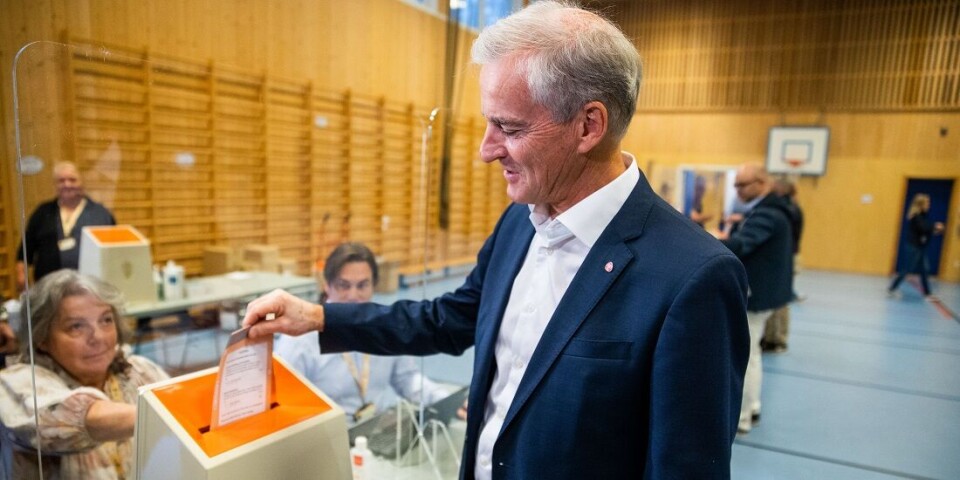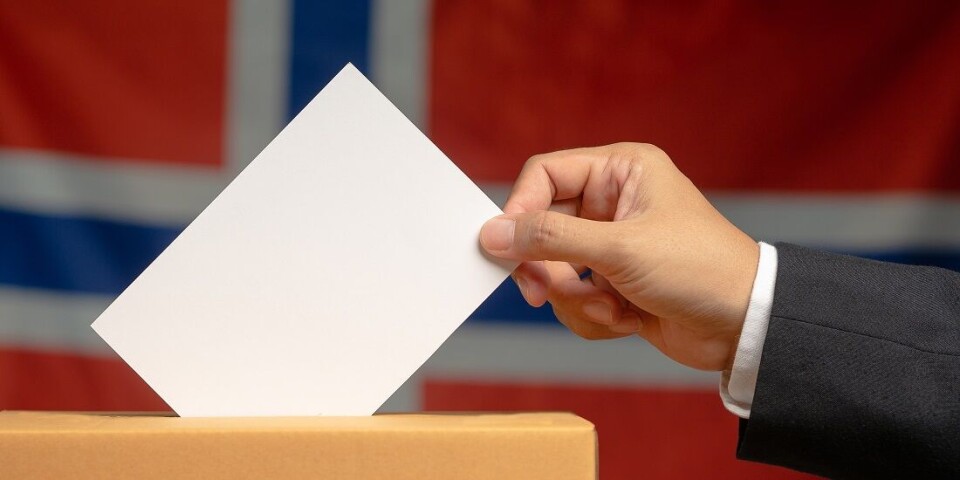THIS CONTENT IS BROUGHT TO YOU BY NTNU Norwegian University of Science and Technology - read more

How does early voting impact election results?
More people are taking advantage of early voting than before. But the impact on the election is not exactly what politicians had hoped for.
In the old days, almost everyone waited until election day to vote. But in the most recent Norwegian general election in 2021, advance votes were in the majority for the first time, with almost 58 per cent of voters opting for early voting. Just two years earlier, that number was slightly over 36 per cent.
“Granted, some people were probably worried about Covid-19. They might have voted early because they were afraid of being ill on the election day itself,” Henning Finseraas says. He is a professor at NTNU’s Department of Sociology and Political Science.
The last election was certainly influenced by the pandemic, but that was not the only factor. The professor expects that the number of people who choose early voting will be very high this time as well.
Early voting has increased gradually
“The proportion of early voting has been a gradual development over a long time,” Finseraas says.
The gradual development has many reasons.
“Historically, you had to have a reason to vote early,” he says.
Eventually, the requirement for a valid reason ended, but the proportion of advance votes remained below 10 per cent in all elections until 1997.
That year, it became possible to cast an early vote at the post office. The proportion of advance votes immediately doubled to almost 19 per cent. That is probably a big part of the secret.

Easier for busy people
“Early voting has become easier, and people are more familiar with it now,” Finseraas says.
Before, you might have had to go to the town hall to vote early. Nowadays, you can often vote in advance at multiple locations in the municipality, such as the nearest shopping centre or library. But that’s not all.
“Once you’ve voted early, it becomes a matter of habit. Besides, the arrangement may just suit modern people better,” he says.

Voting when it’s most convenient can help busy people manage their shedules.
Norway’s advance voting period is very long by international standards. You can usually vote a whole month before the election. In some cases, as early as July 1st.
So how does early voting impact the election and the outcome? Less than you might think.
Does early voting increase voter turnout?
Norwegian authorities have made it easier to vote in advance, and part of the purpose has been to encourage more people to vote. But does it work as intended?
Finseraas was part of a group that investigated the change in 1997, when people could go to the post office and vote early. The group’s research method – comparing municipalities with high and low post office densities – proved to be effective. They were then able to see whether better accessibility contributed to higher voter turnout.
“We found a few small, positive effects, and convenience did play a discernible positive role,” he says.
The research group found that the voting reform had resulted in some increase in turnout. However, other similar research has not found any clear effects. Overall, the voting reform seems to have made little difference.
Will the least socially advantaged vote more often?
Getting people who don’t normally vote to cast a ballot is another reason for making early voting easier.
“The idea is that by reducing the cost of voting, you can also reduce social inequality in electoral participation,” Finseraas says.
The more education you have, the more likely you are to vote. The aim is therefore to encourage more people with less education to vote. These are often the ones with the fewest resources and are normally the least interested in voting.
This goal probably has a low chance of success.
“Some research points in that direction, but the research isn’t clear cut,” he says.
He refers to a new Swedish study that, on the contrary, shows the opposite effect.
The study focused on people who would become parents around election day. There was thus a high risk that they wouldn’t be able to go to the polling station, and would therefore have to vote early if they were to vote at all.
The study showed that several of the expectant parents with higher education chose to vote early. Those with less education did not do so to the same extent.
“These are small differences, but they indicate that people with the fewest resources don’t vote more when early voting becomes more available,” Finseraas points out.
What is the impact on political parties?
“This means political parties will have to mobilise over a longer period,” Finseraas says.
It won’t be enough to just give a big push towards the end of the election campaign. Since people can vote a whole month before the actual election, and increasingly more are doing just that, the party organisations have to be active longer too.
“The parties will have to campaign with higher intensity throughout the election campaign. This will come at a cost to them. They can’t plan and time election campaigns the same way as before and might have to spread their message more, over the entire period,” he says.
What does it mean for the election results?
How the research findings impact election results is almost impossible to say. The effects of the reform can go either way, depending on who is mobilised by early voting and how the election campaign goes.
“The effect could be significant if something dramatic happens towards the end of the election campaign,” Finseraas says.
If you’ve already cast your ballot, you can’t vote again if a scandal or new information comes to light closer to election day. You used to be able to vote again, and then it was the last vote that counted, but that is no longer possible.
Early voting can affect all parties. So the impact on the election result is hard to determine, at least in advance.
Perhaps the conclusion is that it's really convenient to be able to vote early easily. But the impact on the actual election and election result is probably minimal. Nevertheless, it would be risky to move away from the new arrangement.
“Voter turnout might drop if we remove the early voting option or make it more difficult. This is especially true if we don't have an extensive information campaign to say that the opportunities have changed," Finseraas believes.
References:
Dehdari et al. Early Voting Can Widen the Turnout Gap, SocArXiv, 2023. DOI: 10.31235/osf.io/xe7b9
Finseraas, H & Vernby, K. A mixed blessing for the left? Early voting, turnout, and election outcomes in Norway, Electoral Studies, vol. 33, 2014. DOI: 10.1016/j.electstud.2013.07.003
———
Read the Norwegian version of this article on forskning.no
More content from NTNU:
-
Fish farming is least harmful to the seabed in the north
-
Study: Centralising hospitals has reduced birth mortality
-
Early testing of schoolchildren: “We found absolutely no effect”
-
This determines whether your income level rises or falls
-
Why is nothing being done about the destruction of nature?“We hand over the data, but then it stops there"
-
Researchers now know more about why quick clay is so unstable





































